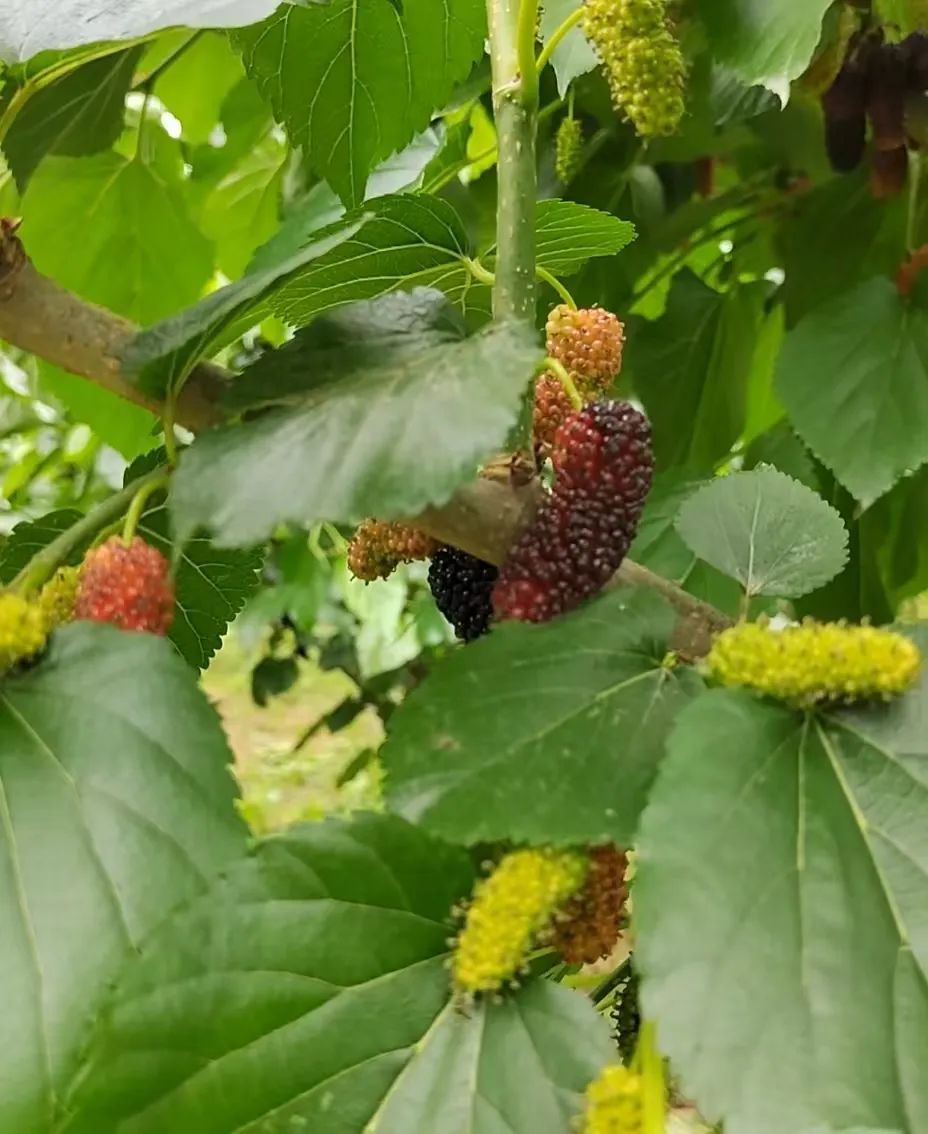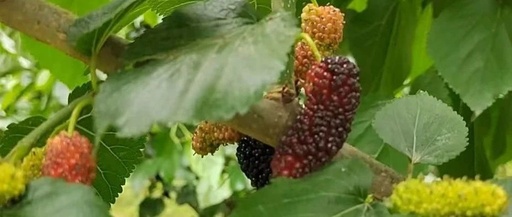 In Traditional Chinese Medicine (TCM), it is said that wind can overcome dampness, meaning that wind-dispelling herbs can be used to eliminate dampness from the body.However, everything has its pros and cons; while wind-dispelling herbs remove dampness, they may also bring about dryness.
In Traditional Chinese Medicine (TCM), it is said that wind can overcome dampness, meaning that wind-dispelling herbs can be used to eliminate dampness from the body.However, everything has its pros and cons; while wind-dispelling herbs remove dampness, they may also bring about dryness.
Is there a herb that can both dispel wind and dampness while also moistening dryness?
The mulberry fruit (Sang Shen, 桑椹), derived from the essence of the star of the wind, possesses such effects.
According to the Qing Dynasty physician Wang Mengying, it “nourishes the liver and kidneys, enriches the blood, alleviates thirst, benefits the joints, dispels wind and dampness, sharpens hearing and vision, and calms the spirit.”
From this statement, it is clear that mulberry not only dispels wind and dampness but also nourishes blood and generates fluids to moisten dryness. This dryness refers not only to wind-induced dryness but also to the heat generated from blood deficiency, which the cooling properties of mulberry can clear.
We know that the skin requires blood nourishment; if blood is deficient and cannot nourish the muscles, and if exposed to dry external air, which is wind, it can lead to a situation of blood deficiency and wind dryness, causing blood deficiency wind dryness-type eczema, dry and flaky skin, pigmentation, and itching.
At this time, the blood-nourishing, wind-dispelling, and dryness-moistening properties of mulberry come into play.
Next, when the skin is dry, has eczema, and is flaky, it is also prone to a consequence: itching, which can be quite bothersome. What can we do?
We can enlist a helper for mulberry: lily bulb (Bai He, 百合).
Lily bulb is renowned for nourishing yin, generating fluids, and moistening the lungs, and since the lungs govern the skin and hair, the fluids produced by lily can nourish the skin, preventing itching. Modern research has also confirmed that colchicine from lily has been used to treat various skin diseases.
With the combination of mulberry and lily, it is like using both a moisturizer and a toner; it is not only effective for blood deficiency wind dryness-type eczema and dry flaky skin but also extends to alleviating itching symptoms caused by blood deficiency wind dryness, and even pigmentation resulting from skin diseases.
This is the medicinal and dietary source formula we are introducing today,
Mulberry and Lily Congee:
30g of mulberry fruit, 30g of lily bulb, 10 jujubes (Da Zao, 大枣), 50g of japonica rice (Jing Mi, 粳米), and 50g of honey.
The last three ingredients act like the logistics support of a company.
Jujube, being warm in nature, harmonizes the cold nature of mulberry, nourishes the blood in conjunction with mulberry, and also tonifies the middle and boosts qi, enhancing the function of the spleen and stomach, allowing the effects of mulberry and lily to take off like a plane.
Japonica rice nourishes the stomach, and a healthy stomach can help the medicinal properties to take effect.
Honey moistens the lungs, intestines, and dryness; on one hand, it regulates the intestinal flora to prevent toxins from forming in the skin. On the other hand, the moistening effect of honey can also hydrate the skin, thus including the treatment of wind rash itching, cracked hands and feet, etc.
Method of preparation:
Combine mulberry fruit, lily bulb, and jujubes in a pot, decoct with water, strain to obtain the liquid, and then add japonica rice to cook into congee. Once the congee is ready, stir in honey. Take one dose daily for 10-15 days.
Emphasizing the conditions treated by this formula:
It is used for blood deficiency wind dryness-type eczema, dry flaky skin, pigmentation, and itching.Additionally, those with these symptoms often have a pale complexion, and even the color of their nails may be pale, and they may experience insomnia and other manifestations.Mulberry can calm the spirit, while lily can nourish the heart and calm the mind. Jujube also has the function of nourishing blood and calming the spirit, collectively aiding in deep and restful sleep.
This formula can also serve as a daily dietary therapy for those with blood deficiency and insufficient fluids, suitable for breakfast. Those who do not prefer sweet foods can omit the honey.
Individuals with blood deficiency and insufficient fluids often experience dry mouth, reduced urination, constipation, and dryness and damage to mucous membranes in the eyes, nose, and mouth.
Warm reminder: Everyone’s body condition is different; the formula provided in this article should be adjusted according to individual conditions, and it is recommended to seek guidance from a professional physician. (Image from the internet, please contact for removal if there is any infringement)

